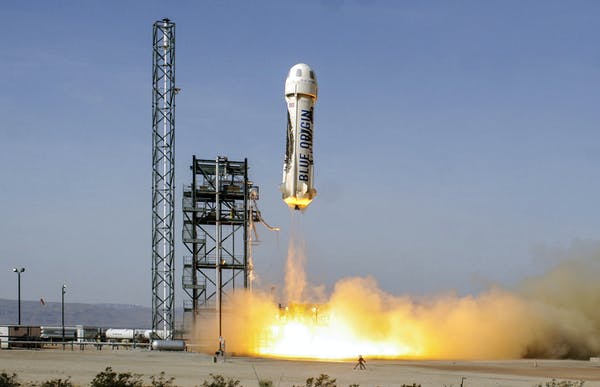Commercial spaceflight companies such as Virgin Galactic and Blue Origin are now offering exclusive opportunities for celebrities and civilians to travel to space.
The risk of death from natural causes was considered remote, and astronauts have been subject to rigorous training and medical scrutiny before going to space.
Medical screening may not be carried out in this new era of space tourism, and only minimal pre-flight training is provided.
How to die on Mars is related.
With a wide variety of people now going to space, and the prospect in the coming years of humans establishing bases on the moon, it raises an important question.
Individual countries are responsible for authorizing and supervising all national space activity. Commercial tourist spaceflights in the United States require a license from the FAA.
There would need to be a determination as to the cause of death for someone to die on a commercial tourist mission. If the death of a spaceflight participant was due to a mechanical fault, the Federal Aviation Administration would look to suspend further launches by the company.
If mechanical failure is discounted, there would need to be consideration of the overall duty of care to all travelers by the commercial provider and assessment made about whether it did everything possible to prevent the person's death.
The time spent in space on tourist missions varies from a few minutes to a few days. The risk of a death in space from natural causes is very low.
When humans embark on longer missions deeper into space, and even one day become permanently established in outer space, the question of what to do if someone dies will become more pertinent.
The cause of death of humans in outer space will need to be established through an investigative process. In 2003 there was an inquiry into the Columbia Shuttle disaster, in which seven astronauts were killed when the shuttle broke apart as it returned to Earth.
These investigations have been about high-profile accidents and US spaceflight. Deaths in space or on another heavenly body are inevitable as opportunities for space travel expand.
A formal procedure for investigating deaths on long-duration missions and space settlements will be necessary to ensure there is clear information on who died, the causes of death, and so lessons can be learned.

Many of the procedures associated with inquests could be imported from Earth. The default position of international space law is where a country has jurisdiction over a space object and any personnel. It is likely that a country with such jurisdiction would have the authority to conduct an inquest and determine the procedures to deal with a death in space.
An agreement tailored to the specific settlement or mission would be better than this one. Power, food, protection against radiation and waste disposal are some of the factors considered when planning a mission to space. A traumatic event will be slightly less so if processes are put in place for what to do if a person dies.
If there are a number of countries participating, having an agreement in place at the beginning of the mission is even more important.
The disposal of human remains will need to be considered by missions that send humans further into the Solar System. It is important to take into account that different cultures treat dead people differently.
It is likely that the body would be brought back to Earth. The body would need to be preserved and kept out of the reach of the surviving crew.
It is possible that the body could be frozen in the cold of space to make it easier to return to Earth.
If we start to colonize outer space, bodies may need to be thrown away.
The way Spock's body was thrown into space probably wouldn't be desirable in real life. Some countries may object to having a human corpse floating in space, while others may object to the body itself contributing to the issues created by space debris. The family of the deceased may want their loved one's body returned.
The disposal of human remains on a colony is fraught. The body of a person buried on another planet may be biologically contaminated. It is likely that cremation is resource-intensive.
There will be technical solutions to the storage and disposal of human remains in the future. There are ethical issues around death in space. As humans become a space-faring species, we will need to have many conversations about the idea.
The article is licensed under a Creative Commons license. Read the original article.
Follow all of the Expert Voices issues and debates and become a part of the discussion on social media. The author's views are not necessarily those of the publisher.